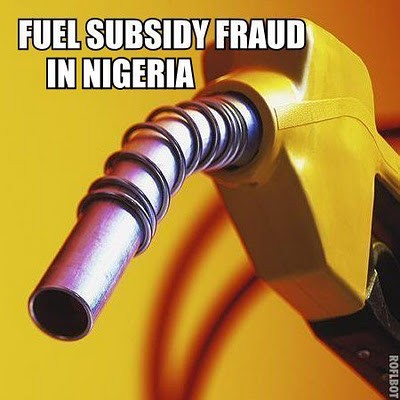Economy
Nigeria spent 45% of fuel import bill on subsidy in Q1 – report

BY EMEKA EJERE
Nigeria spent a total of N675.93bn on fuel subsidy, an amount representing 44.86 per cent of the N1.51tn spent on the imports of premium motor spirit, also known as petrol, in the first quarter of 2022.
This was disclosed in the Foreign Trade in Goods Statistics report of the National Bureau of Statistics (NBS).
The amount spent on petrol import was 25.54 per cent of the total imports for this quarter, and an increase of 17.05 per cent when compared to the N1.29tn spent on importing fuel in Q1 2021.
The PMS import, as usual, tops the list of imported products for this quarter.
Data from the Nigerian National Petroleum Company (NNPC) Limited showed that the oil firm spent N210.38bn, N219.78bn, and N245.77bn as subsidy on petrol in January, February, and March 2022 respectively.
The amount spent on fuel subsidy monthly rose from N60.39bn in March 2021 to N245.77bn in March 2022, indicating an increase of 306.97 per cent.
Despite the increasing cost of the fuel subsidy, Nigerians still suffered a hike in the cost of transportation.
Economic and energy experts have continued to decry the rising cost of fuel subsidy to the Federal Government.
The World Bank and the International Monetary Fund have decried the Federal Government’s huge spending on petrol subsidy, urging the government to end the regime.
The World Bank, in its Africa’s Pulse report, said increasing fuel subsidy puts the Nigerian economy at a high risk as subsidy payments could significantly impact public finance and pose debt sustainability concerns.
Although the Federal Government had planned to stop paying fuel subsidy by June 2022, the government eventually backtracked on the plan.
However, in January this year, the Federal Government decided to retain the controversial fuel subsidy for another 18 months following threats of protests by the Nigerian Labour Congress and other interest groups.
The IMF said the fear of political resistance, widespread corruption and pressure from interested groups is hampering the removal of the fuel subsidy in Nigeria.
The IMF said this in its ‘Nigeria: Selected Issues Paper’ report, which was prepared by a staff team of the Fund as background documentation for its periodic consultation with Nigeria
The Federal Government has said it plans to tap the $2.2bn it raised in a Eurobond sale last year and targets more local borrowing in 2022 to help fund the subsidy.
The IMF has also said that Nigeria will likely depend on overdrafts from the Central Bank of Nigeria to fund its petrol subsidy bill, which will further negatively affect the country’s fiscal position.
The IMF’s Resident Representative for Nigeria, Ari Aisen, recently said that Nigeria’s subsidy bill would likely hit N6tn by the end of this year at the current monthly subsidy bill of N500bn.


